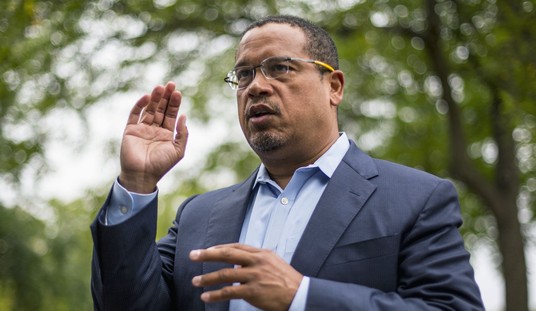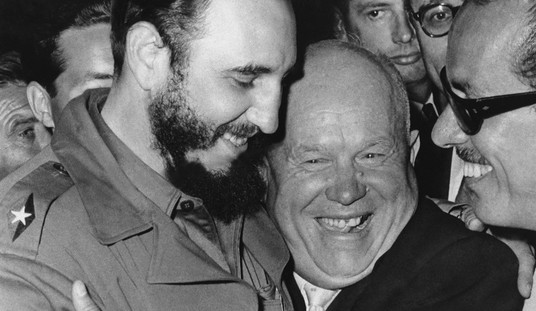Normally, an operation to roll up an espionage network entails secrecy, as any hint to the network’s home intelligence service would mean losing the opportunity of catching the agents and the data they have stolen. That was not the case with the Russian sleeper agents arrested by the FBI this month in a dramatic if anachronistic display of the rivalry between Washington and Moscow. In fact, the US tipped off their counterparts in Russia about the spies — and worked out the details of the swap before ever getting any of the suspects in custody (see update below):
The White House began deliberating a spy swap with Moscow nearly a month ago, well ahead of the arrests of 10 Russians in the United States less than two weeks ago, a White House official said Friday.
In the course of the following negotiations with Moscow, the United States put forward the names of the four people who were released by Russia on Friday as their part of the bargain, the official said, briefing reporters on condition of anonymity under ground rules set by the White House.
The swap took place Friday in Vienna. The official said all of the children of the Russian spies had left the United States for Russia or were in the process of leaving.
The Russian agents had been under observation by U.S. authorities for a decade. The decision to move against them was precipitated by indications that some planned to leave the United States this summer, the official said.
Why not just arrest the spies first? After all, even if Barack Obama wants to perform a “reset” on US-Russian relations, the Russians were spying on us, and subject to arrest. The four people the US wanted in the trade certainly weren’t given that kind of consideration, after all.
If the sleepers really had acquired no damaging information, the point is probably academic. However, tipping off the Russians more or less made that conclusion certain. The FBI cannot be so naive as to think that Moscow didn’t instruct their agents to destroy anything incriminating that would prove a crime more serious than the failure to register as a foreign agent, a felony that carries a five-year sentence but is far less serious than actual espionage.
Something about this doesn’t smell right — and the fact that the administration is only talking about it after the swap, and on a Friday night, makes it seem even more peculiar.
So who did we get in the swap? The Washington Post offers a profile:
Three of the four whom Russia traded for them were professionals — once successful career officers in the Russian intelligence service.
One had been convicted of being a double agent for the United States, and another pleaded guilty to giving KGB secrets to the British intelligence agency, MI6. The third was never charged with espionage but was fired from the service under suspicion that he had developed a dangerous friendship with a CIA counterpart. He was arrested years later on charge of illegal weapons possession apparently unrelated to his KGB past.
The fourth was Igor Sutyagin, a 45-year-old arms control and nuclear weapons researcher for a Moscow think tank who had no known intelligence background yet spent the past 11 years in a prison camp after being convicted of passing sensitive information to the CIA through a British front company. Sutyagin had consistently maintained his innocence, noting that he had no security clearance and no secrets to reveal.
In terms of actual impact, these four would seem to have much more value than the professed failure of the Russian sleeper agents. For the Russians to give up even one of these people would be significant — and four seems too good to believe. And that also has me wondering why the US felt the need to give the Russians a heads-up on the arrests first, and why the Russians were willing to swap arguable traitors for ten supposed failures.
Update: One e-mailer says that the AP story quoted at the top doesn’t quite say that we negotiated with the Russians, but that we considered negotiating with the Russians before arresting the spies. If so (and it seems that’s what Jennifer Loven meant), it’s hard to see what the point of the article was anyway. Wouldn’t we be considering a swap as soon as we knew we had Russian assets to seize? Why would we wait for years to have that cross someone’s mind? The people who got sprung in Russia had been either in prison or fired years ago.
It still doesn’t explain the disparity in the trade, either. If the idea was to seize the agents to put pressure on the Russians to release these four people, why wait until these ten were about to flee to do it? Why are the Russians so eager to to trade four people who apparently did substantial damage to their security for ten flops?








Join the conversation as a VIP Member